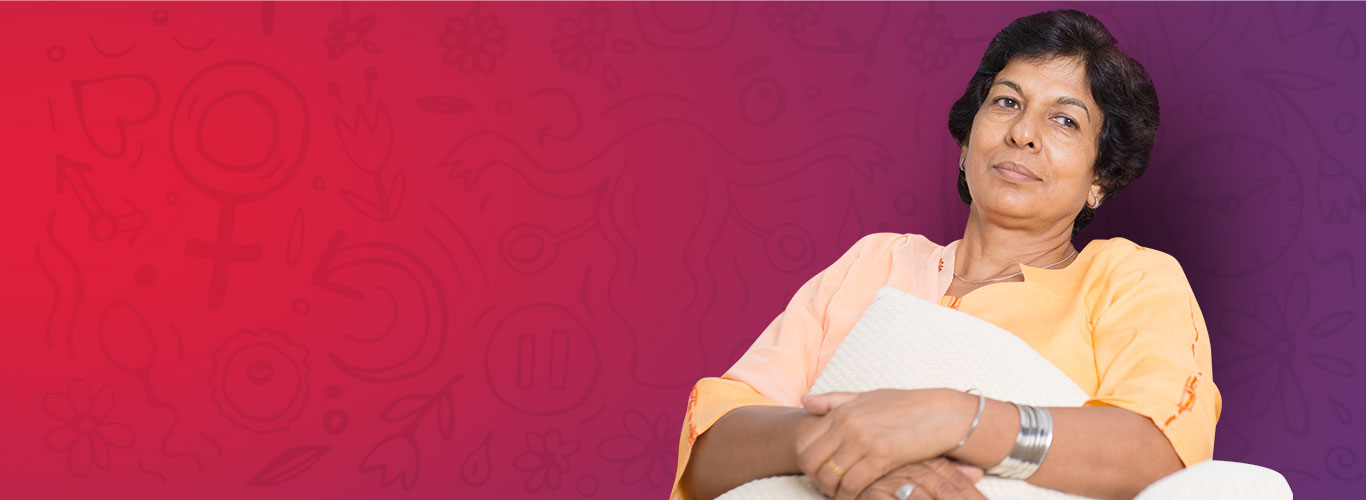

At menopause, these signs and symptoms may vary. Some may have no symptoms at all, while others may find these symptoms problematic. "ome of the most common changes you may notice at menopause & simple remedies that may help you to reduce these symptoms."
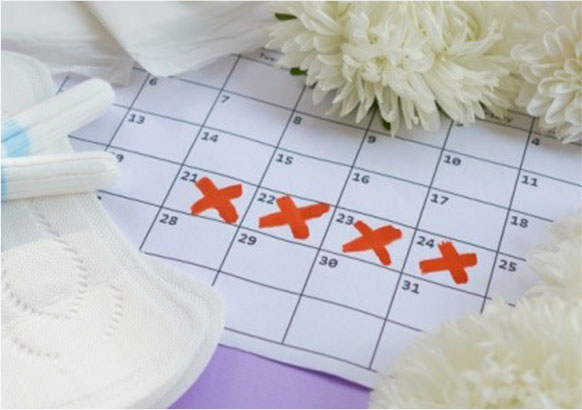
Irregular periods
(Irregular period patterns)
As you approach mid-age, irregular periods is probably the first sign that you may notice. You may experience irregular periods for three to ten years before your periods stop completely. If you have missed your period, make sure you rule out pregnancy. If you are not pregnant, this may indicate the start of menopause. If you have spotting after a year without your period, consult your doctor.

Remedies
Exercise regularly to relieve stress and maintain a healthy weight. Have herbal teas or use a hot water bag to get quick pain relief.
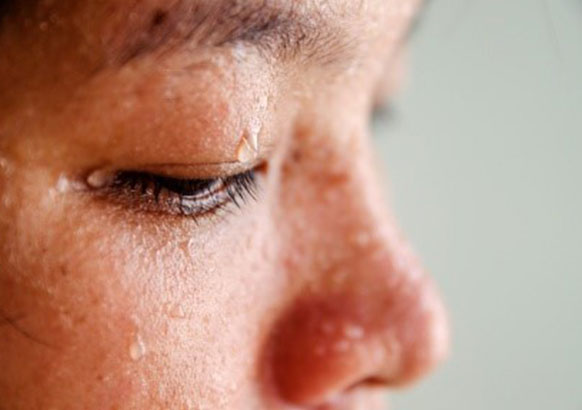
Hot flushes
(Sudden heat and sweating)
Hot flushes are a common symptom of menopause. A hot flush is known as a sudden feeling of heat either in the upper part of your body or all over. Your face and neck may turn red, and you may sweat heavily. Hot flushes usually last between 30 seconds and 10 minutes. If your hot flushes are impacting your life, consult your doctor.

Remedies
Have foods rich in vitamin C & E. Wear loose, cotton clothes. Regular exercises and yoga may help you to reduce stress.

Sleep disturbances
(Hard to fall or stay asleep)
As you reach menopause, you may find it difficult to fall or stay asleep. Night sweats (hot flushes that occur at night) may also keep you awake. Consult your doctor to find ways to improve your sleep.

Remedies
Bathing, reading, or listening to music before going to bed may help you relax. Avoid foods and drinks like chocolate, caffeine, or alcohol that may affect your sleep.

Mood swings
(Rapid changes in mood)
During menopause, changes in the production of hormones may affect your mood. You may feel moody, irritated, or depressed. If you notice that your mood swings are extreme, or they last for a long duration, you should ask your doctor for help.

Remedies
Exercise regularly and get good quality sleep to reduce your stress.
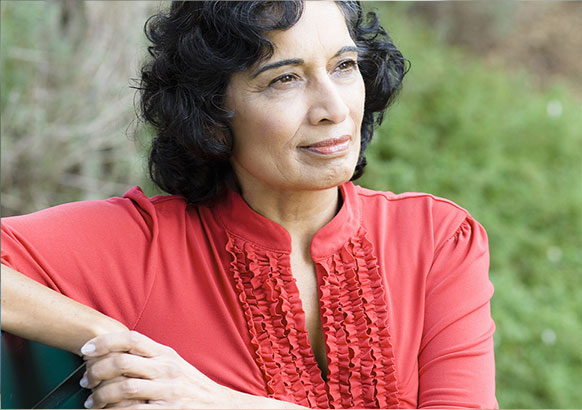
Irritability
(Feeling more irritated than normal)
As you reach menopause, you may find that you get more easily irritated by daily stress in your life.
Changes in the level of estrogen can increase your risk of experiencing irritability during menopause. If it continues or develops into more serious psychological condition, you should speak to your doctor.

Remedies
Making some positive life changes may help you treat irritability. Practicing breathing exercises, yoga, or meditation can help reduce stress & improve your mood.

Anxiety
(Feeling of worry or nervous)
In your 40s & 50s as you go through menopause, one of the most common causes of anxiety is reduced levels of estrogen. If you are concerned about your anxiety do not hesitate to consult your doctor.

Remedies
Lifestyle and self-care changes, including increased physical activity, dietary changes, and relaxation techniques may help treat anxiety.
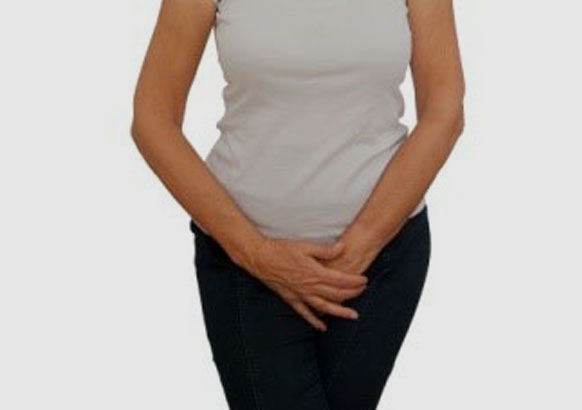
Vaginal dryness
(Vaginal tissue become dry)
A decrease in the production of hormones can affect your vagina, making it dry. Your vaginal tissues are not adequately moisturized; this may cause you distress and also affect your sexual life.
To prevent dryness, use a vaginal moisturizer. If you still have pain, talk to your doctor.

Remedies
Use water-based vaginal lubricants or a vaginal moisturizer to get relief from dryness. Sexual activity can increase blood flow to the vagina.
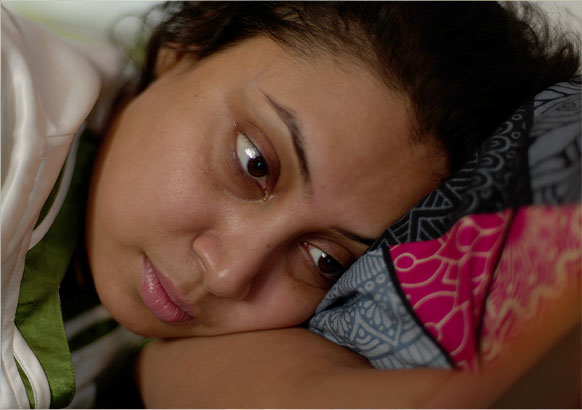
Loss of interest in sex
(Sudden drop in sexual desire)
Fluctuations in your sexual desire are normal throughout life. During menopause, it is common that you may feel less interested in sex. You may also experience vaginal dryness and painful sex. If decrease in sexual desire is bothering you, consult your doctor.

Remedies
Have foods rich in dietary estrogen, zinc, and magnesium. Practice kegel exercises to improve your vaginal muscles. Breathing exercises may also help to reduce stress.

Joint pain
(Pain not related to injury or exercise)
You may often suffer from joint pain due to drastic hormonal changes, as you approach menopause, typically between 45 and 55 years of age. Among middle-age women, painful joints are caused due to swelling that is triggered by low levels of estrogen. You should consult your doctor in early stages of joint pain.

Remedies
Have a diet rich in phytoestrogens, omegas, calcium, and vitamin K2 & D. Practice low-impact exercises to maintain flexibility & weight & avoid sedentary lifestyle. Apply hot packs to get immediate relief from pain and stiffness or cold packs to reduce swelling.
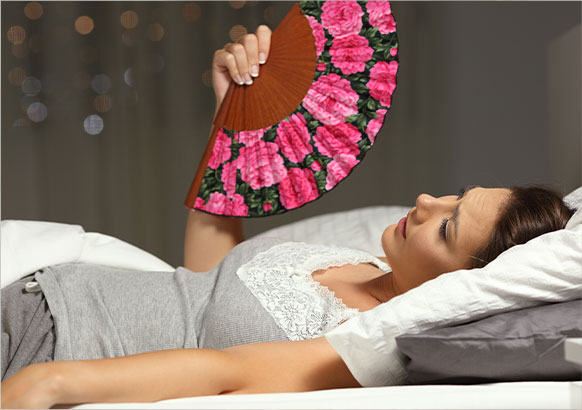
Night sweats
(Hot flushes at night)
Hot flushes that occur at night are known as night sweats. They can also increase your heartbeat, cause redness, and chills. If your night sweats are affecting you, it is important you talk to your doctor.

Remedies
Add vitamin E-rich foods to your diet. Keep your bedroom at cool temperatures and sleep in loose nightwear. If you have night sweats, apply cold packs to your body to cool yourself down.


